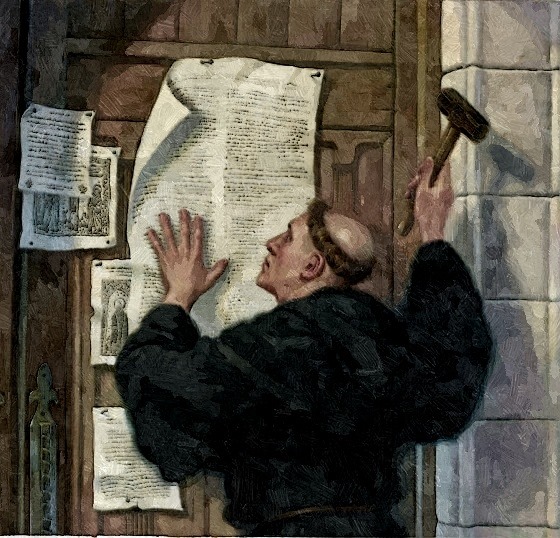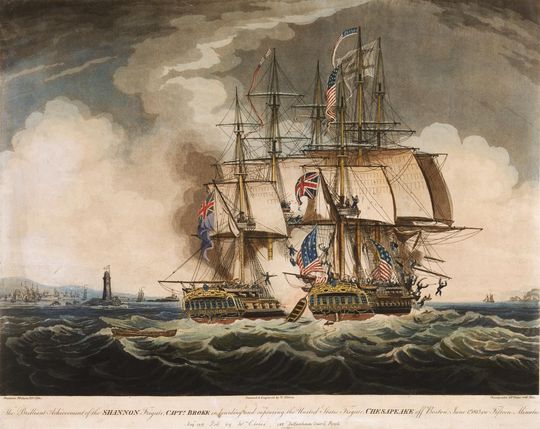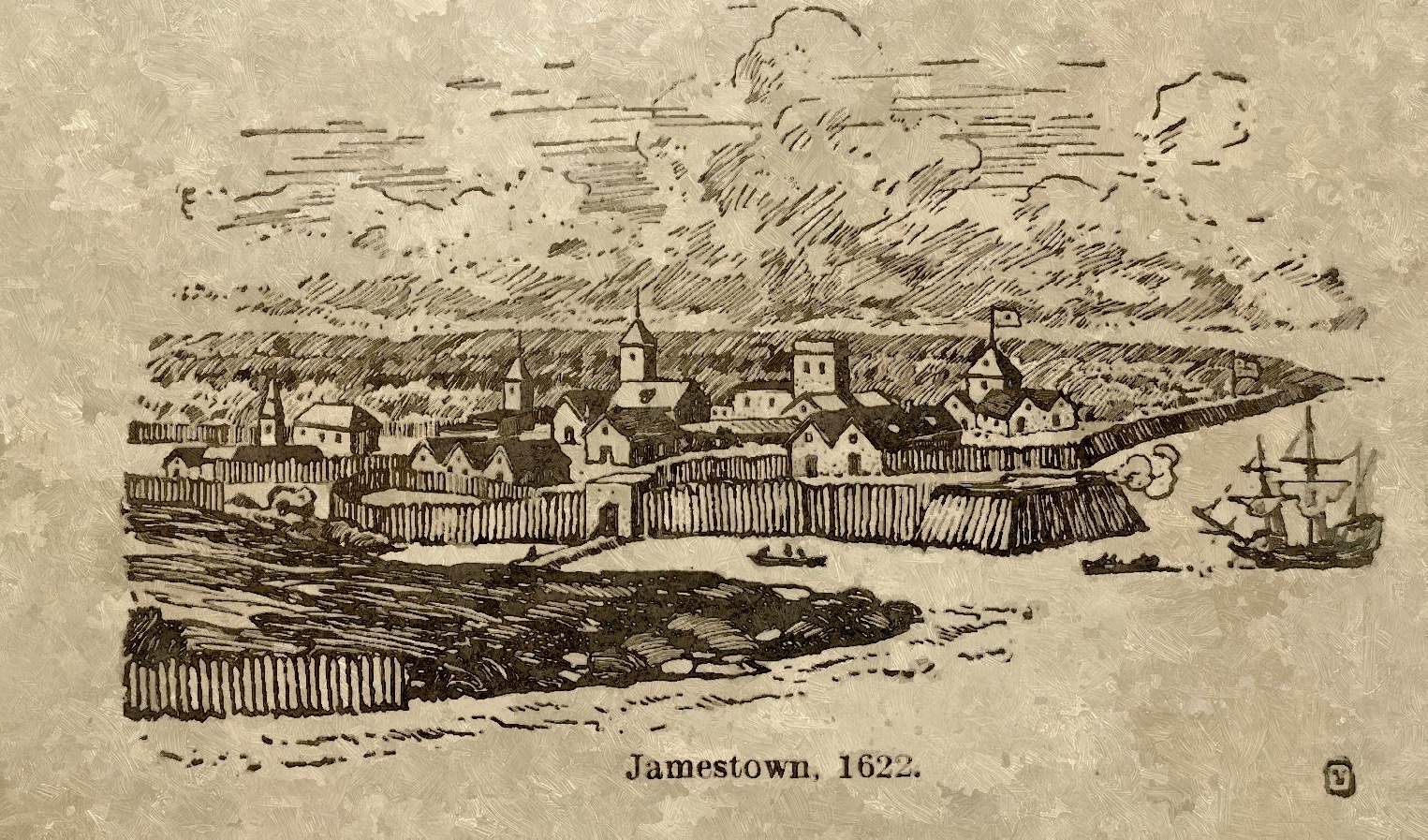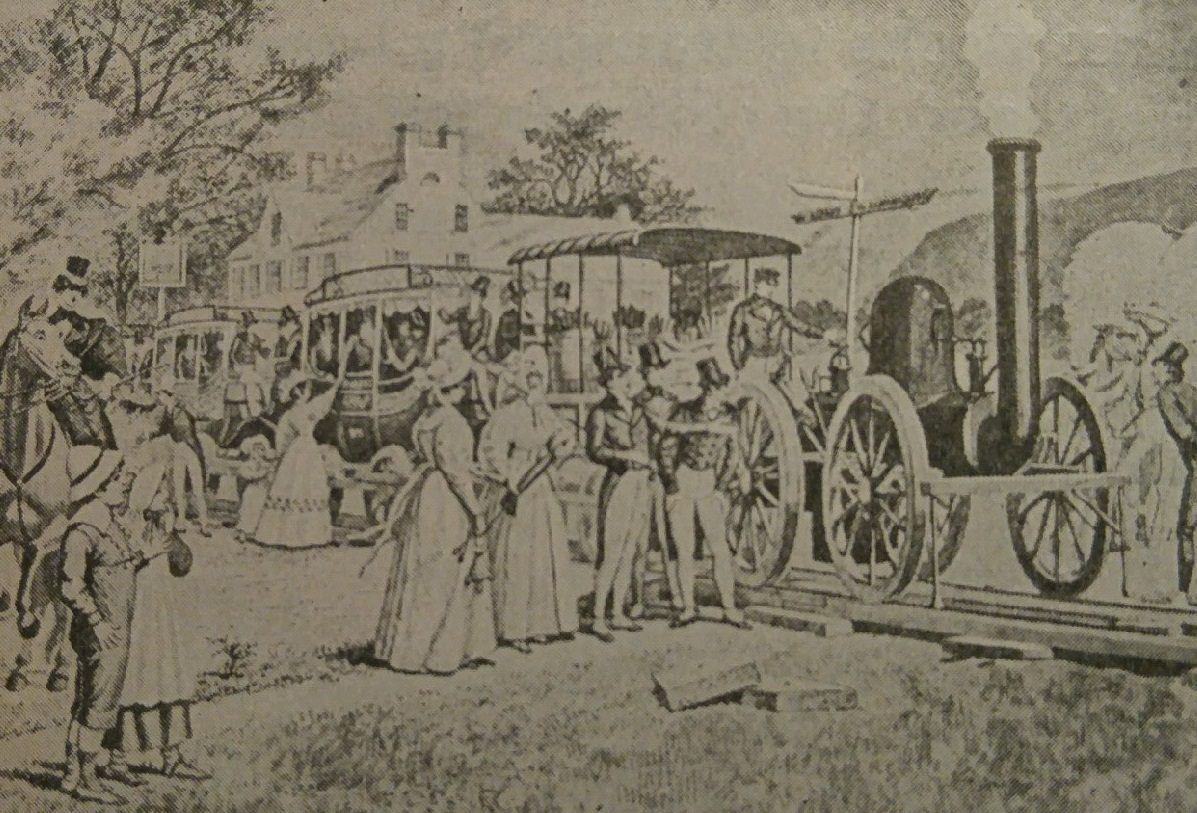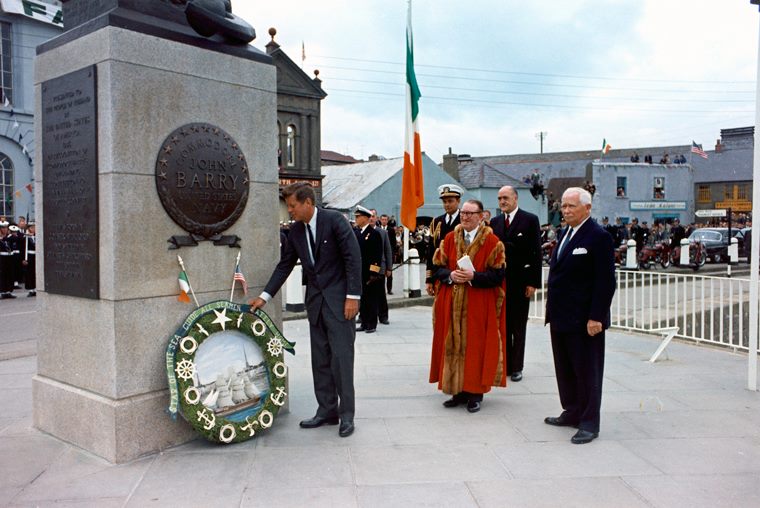While chewing your Halloween candy, please take a few minutes and chew on this. Your religious liberty is the result of what occurred 506 years ago today!
Don’t Give Up the Ship!
#OTD, June 1, 1813, an American Navy Captain, as he lay dying, shouts out his heroic final command, which becomes the rallying cry of his countrymen. Who was he? What was his command? Here’s the story.
Don’t Give Up the Ship!
The United States Navy was in its infancy during the War of 1812. Although it suffered defeats, it achieved some brilliant victories. For example, Captain James Lawrence, who commanded the Hornet, captured the British brig called the Peacock, after which he took command of the Chesapeake.
Then, on June 1, 1813, while refitting the Chesapeake at Boston, Captain Phillip Bloke of the British Frigate Shannon was lying just off the harbor. He sent a message to Captain Lawrence, challenging him to a naval duel. Captain Lawrence was at a significant disadvantage:
First, he recently discharged some of his crew.
Second, those still on board hadn’t been paid and were near mutiny.
Third, these remaining men only had a few weeks of training.
Finally, the Chesapeake was partially disabled.
The situation was grim. However, the brave Captain accepted the challenge and headed to sea with his half-busted ship and untrained crew.
The Chesapeake didn’t fare well. The British took advantage and boarded her. Bloody hand-to-hand combat followed. All officers onboard were killed or wounded, including Captain Lawrence. As he lay dying, covered in blood, the dying Captain issued his final heroic order:
“Don’t Give Up The Ship!”
Unfortunately, the crew couldn’t fulfill the command as the British overpowered them. However, Captain Lawrence’s words became the rallying cry of his countrymen, inspiring a turn in the tide of the war just a few months after his death.
Inspired by Words
There was the dangerous possibility that the British could take possession of the Great Lakes, enabling them to send troops across Lake Erie to occupy American soil. The American Captain Oliver H. Perry gathered a fleet of nine armed vessels, five of which his men built out of timber on the banks of the lake. Perry manned the flag-ship Lawrence, named after the fallen hero. The crew of the Lawrence hoisted a flag with the words “Don’t Give Up the Ship” woven on it. Do you have chills? Can you guess where this is going?
With the Lawrence leading the way, the American Navy met a British fleet on Lake Erie, and a hot battle ensued. The Lawrence sank. Perry escaped the wreckage with his twelve-year-old brother, and together they rowed in a small vessel right through the thick of the battle for another ship. The rowboat took heavy fire, and bullets shredded Perry’s little brother’s hat. They made it to another boat and led the fleet to Victory!
Perry sent this message to General Harrison, who was defending Ohio:
“We have met the enemy, and they are ours!”
The battle was a turning point, and the British never rechallenged the Old Northwest. Captain Lawrence and his men courageously faced overwhelming odds and perished, but their example inspired the American Navy to turn the tide of the war.
Jamestown: The Beginning of the American Experiment
On May 13, 1607, the English colonists landed near the James River in Virginia.
Nations have risen and fallen throughout world history. In the late 1500s, there was another attempt to build a nation. This one was unique. If we could travel back to 1607 Jamestown, the first permanent settlement in America, we wouldn’t notice anything special. Their boats weren’t much better than the ones Columbus sailed on or crossed the Mediterranean 1000 years before that. Their tools weren’t much of an upgrade – their shovels, axes, and hoes were similar to the ones used in ancient China and Egypt; their farming methods were also hoary with age; the same for their clothes and medicines.
At first, it didn’t look like Jamestown would make any progress. Of the first 9,000 settlers, only around 1,000 survived. What made Jamestown unique was its potential. They came from Europe, where Governments controlled economics, politics, and religion. But in the new world, although they imitated those old world bad habits, they were in a position to make improvements.
Economic Improvements
Economically, the early settlers weren’t completely free to develop their talents. Jamestown tried a form of communism, or corporatism, which was a miserable failure. They replaced that system with free enterprise, and things improved.
Political Improvements
The colonists also made improvements politically. In the summer of 1619, the first representative assembly in America, where people created laws through their chosen representatives, gathered for the first time, marking the birthday of America’s free institutions.
Religious Improvements
At first, political leaders vigorously controlled religion in Jamestown. But, eventually, over time, Americans would win their freedom in this area too. Thomas Jefferson helped write a bill establishing religious liberty, which he considered one of the most significant accomplishments in his life.
We’ve Come A Long Way
Look how far we’ve advanced economically, politically, and religiously since Jamestown. We went from sailing in the uncomfortable and small Speedwell to enormous luxury Cruise liners, from Monarchy to the Representative Republic, from state-forced religion to freedom to worship.
We may regress if we’re not careful. We are never more than one untaught generation from losing our liberties. Where are we today? Our best days can still be ahead of us as they were for the folks in Jamestown. But we, like them, must work hard to maintain our heritage and pass it on to the next generation.
Our best days can be ahead of us!
Building America and Expanding Narrow Minds with Iron Rails
Building America and Expanding Narrow Minds with Iron Rails – By Daniel Sheridan
#OTD, June 9, 1781, a man was born whose world-changing invention built America.
In the 1830s, the world began progressing technologically at unprecedented levels through the efforts of inventors busily applying their talents for humanity’s sake. One revolutionized travel, helped build America, and expanded narrow minds as a by-product. Here’s the story.
In 1807, Bostonians built the first American railroads, called tramways, which were temporary rail lines designed to transfer loads out of coal mines. Meanwhile, boats and factories utilized steam engines. One day, a clever inventor combined the two technologies.
George Stephenson, an English civil and mechanical engineer, was born June 9, 1781. In 1814, he invented a steam engine running on wheels grooved onto rails dragging attached cars loaded with cargo.
People mocked Stephenson’s contraption. A parliamentary committee man interrogating Stephenson sarcastically asked,
“Suppose, Mr. Stephenson, that a cow were to get in front of your engine moving at full speed, what would happen?”
George, however, unmoved by the little faith cynic, replied with his Northumberland accent,
“It wad be vera bad for the coo!”
In 1821, Stephenson engineered and oversaw the Stockton and Darlington railway construction, becoming the first pubic railway four years later.
Americans adopted Stephenson’s invention by 1830. Within a few years, Americans could travel from New York to Portland, Oregon, at the same time it previously took to go from New York to Portland, Maine, in the days of John Quincy Adams.
Before the railroad, people traveled at a snail’s pace by wagon carrying small loads, which was not easy, especially maneuvering through muddy trails and weather conditions. After Stephenson’s invention appeared in America, freight trains crossed the country through any weather carrying large loads at lightning speeds.
The railroad lowered transportation costs, encouraged travel, and added new cities and states to the American landscape. America became smaller and easier to govern, too.
Furthermore, the railroad expanded people’s minds. Mark Twain said that travel cures bigotry. Efficient transportation exposes people to new worlds and promotes expansive commercial exchanges, bringing people closer and more frequent contact and eliminating bigotry and prejudice from the hearts of the sincere.
In 1830, Americans laid 23 miles of track for horse-drawn cars. By 1840, they embedded 2,800 miles of rail powered by Stephenson’s invention and blanketed over 30,000 miles of the country by 1860. Railroads and steamboats put westward expansion on the fast track.
On this day, June 9, 1781, George Stephenson was born.
The Freedom of the Press
#OTD, July 8, 1889, the “Wall Street Journal” begins publishing.
“Congress shall make no law…abridging the freedom of speech or of the press…” #FirstAmendment
Sir William Blackstone said, “Every freeman has an undoubted right to lay what sentiments he pleases before the public.” Freedom of speech is essential in a society, for free debate leads to the correction of public errors. But Blackstone also warned that “if he publishes what is improper, mischievous, or illegal, he must take the consequences of his temerity.” Freedom of speech comes with responsibilities.
“The only security of all is in a free press. The force of public opinion cannot be resisted when permitted freely to be expressed. The agitation it produces must be submitted to. It is necessary, to keep the waters pure.” –Thomas Jefferson to Lafayette, 1823.
“Our liberty cannot be guarded but by the freedom of the press, nor that be limited without danger of losing it.” –Thomas Jefferson to John Jay
The First Amendment says THE freedom of the press, which was an existing right, and that is why the framers inserted the definite article. What is the press? It includes “all modes of putting facts, views, and opinions before the public.” Because of easy access to information, modern Americans are, in some measure, amateur press members. Think about that whenever you share “information.” What is your motivation? Are you doing it for truth’s sake? Or, are you motivated by party, willing to sell out your conscience for an election victory? If you’re a Christian, are you ready to toss your Bible out the window so you can bear false witness to promote your candidate and issues? When you achieve a victory through vanity, your returns will only be diminished.
Benjamin Franklin provided an example of virtuous news stewardship. He refused to print a vicious article. When the author asked why, “It is highly scurrilous and defamatory,” was Ben’s reply. “But being at a loss, on account of my poverty, whether to reject it or not, I thought I would put it to this issue. At night when my work was done, I bought a twopenny loaf, on which I supped heartily, and then, wrapping myself in my great coat, slept very soundly on the floor until morning, when another loaf and mug of water afforded a pleasant breakfast. Now, sir, since I can live very comfortably in this manner, why should I prostitute my press to personal hatred or party passion for a more luxurious living?”
Captain John Barry: An American-Irish Naval Hero and “Father of the American Navy”
Captain John Barry: An American-Irish Naval Hero and “Father of the American Navy” – By Daniel Sheridan
On June 27, 1963, President John F. Kennedy laid a wreath at the memorial to the Revolutionary War hero, John Barry, of Wexford, on the first full day of his visit to Ireland. Who is John Barry?
The British Navy dominated the seas in the 1770s. During the Revolutionary War, the American Navy was no match for them. But private ship owners bravely filled the gap. Congress granted them the authority to “distress the enemies of the United States by sea or land.” Their pay consisted of war spoils. These patriots sailed up and down the Atlantic, destroying hundreds of enemy ships. Massachusetts and Pennsylvania alone employed about five hundred ships in this service.
Historians have singled out John Paul Jones as the “Father of the American Navy.” However, thousands of other seamen fighting for American Independence were just as patriotic and accomplished as Jones, but Jones got the most press. One man’s story demands our admiration.
Outside Independence Hall in Philadelphia stands the statue of John Barry. Captain Barry, a native of Ireland, was born in Wexford in 1745. When the war for Independence broke out, he willingly offered his services to his adopted country – the new United States. Barry’s exploits were terrific. He cruised up and down both sides of the Atlantic, engaging the British in fierce battles. He lost a few ships and was wounded in action more than once, but he continued to fight and captured many prizes.
The British, unable to beat Barry, tried to seduce their former citizen to switch sides with an offer that most men wouldn’t have the virtue to refuse. They offered Barry $100,000 cash and the command of a frigate in exchange for his loyalty. Think about how much money that was in the 1770s. What would you have done? Here’s what Barry did. He replied without hesitation and indignantly:
“Not the value and command of the whole British fleet can seduce me from the cause of my country!”
Barry was a faithful and virtuous Patriot from the outbreak of the war till its glorious end; he even fought in the last naval battle. His service extended beyond the war, too. Barry helped establish the newly formed government under the Constitution when President George Washington appointed him Captain in the freshly reorganized Navy. He oversaw the construction of the famous frigate “United States” and took command of it when put to sea. Additionally, the Captain defended his country in the naval war with France from 1798 to 1801. He continued to assist his country in other capacities until he was too ill to serve, an illness that took his life.
Captain Barry died on September 13, 1803, in Philadelphia. People said, “Barry was noble in spirit, humane in discipline, discreet and fearless in battle, urbane in his manners, a splendid officer, a good citizen, a devoted Christian, and a true Patriot.”

